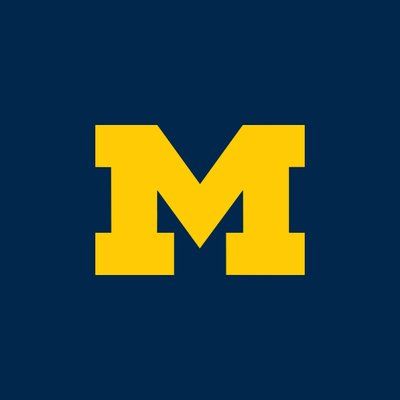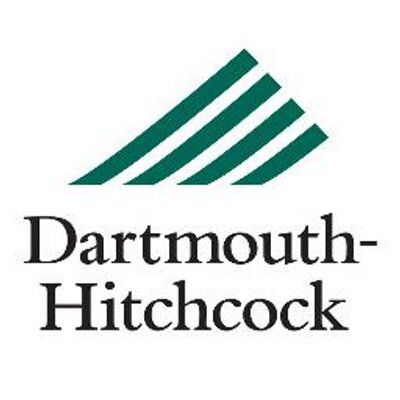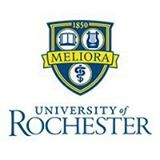预约演示
更新于:2026-02-27
Ammonium tetrathiomolybdate
四硫钼酸铵
更新于:2026-02-27
概要
基本信息
权益机构- |
最高研发阶段临床2期 |
首次获批日期- |
最高研发阶段(中国)- |
特殊审评孤儿药 (美国) |
登录后查看时间轴
结构/序列
分子式H8MoN2S4 |
InChIKeyPDAXSLIRCAICGW-UHFFFAOYSA-P |
CAS号15060-55-6 |
关联
12
项与 四硫钼酸铵 相关的临床试验NCT06134375
Novel Targeting of the Microenvironment to Decrease Metastatic Recurrence of High-Risk TNBC: A Randomized Phase II Study of Tetrathiomolybdate (TM) Plus Capecitabine in Patients With Breast Cancer at High Risk of Recurrence
There are two parts to this study. It is a phase 1b followed by a randomized phase 2 study to assess whether adding 3 years of adjuvant tetrathiomolybdate (TM) to standard 6 months treatment of adjuvant capecitabine and pembrolizumab in high risk for relapse triple negative breast cancer.
In the phase 1b part of the study, TM is added to adjuvant capecitabine and pembrolizumab in high risk for relapse triple negative breast cancer (RCB 2, 3, risk for relapse >60% at 5 years) after completion of neoadjuvant chemo-immunotherapy and surgery to establish the safety of the combination. This will be followed by a randomized phase 2 clinical trial of adjuvant TM and capecitabine vs capecitabine alone.
If pembrolizumab was administered in the neoadjuvant setting, it may be continued in the adjuvant setting per investigator discretion.
In the phase 1b part of the study, TM is added to adjuvant capecitabine and pembrolizumab in high risk for relapse triple negative breast cancer (RCB 2, 3, risk for relapse >60% at 5 years) after completion of neoadjuvant chemo-immunotherapy and surgery to establish the safety of the combination. This will be followed by a randomized phase 2 clinical trial of adjuvant TM and capecitabine vs capecitabine alone.
If pembrolizumab was administered in the neoadjuvant setting, it may be continued in the adjuvant setting per investigator discretion.
开始日期2024-11-26 |
申办/合作机构 |
NCT01837329
A Phase I Study of Tetrathiomolybdate (TM) in Combination With Carboplatin and Pemetrexed in Chemo-Naive Metastatic or Recurrent Non-Squamous Non-Small Cell Lung Cancer
The main objective of this study is to determine recommended phase II dose and safety of tetrathiomolybdate (TM) in combination with carboplatin and pemetrexed in chemo-naive metastatic or recurrent non-squamous non-small cell lung cancer.
开始日期2013-11-01 |
申办/合作机构 |
NCT00560495
The Combination of Radiotherapy With the Anti-Angiogenic Agent Tetrathiomolybdate (TM) in the Treatment of Stage I-IIIB Non-Small Cell Lung Cancer (NSCLC): A Phase I Study
RATIONALE: Ammonium tetrathiomolybdate may stop the growth of non-small cell lung cancer by blocking blood flow to the tumor. Radiation therapy uses high-energy x-rays to kill tumor cells. Giving ammonium tetrathiomolybdate together with radiation therapy may kill more tumor cells.
PURPOSE: This phase I trial is studying the side effects of giving radiation therapy together with ammonium tetrathiomolybdate in treating patients with stage I, stage II, or stage III non-small cell lung cancer.
PURPOSE: This phase I trial is studying the side effects of giving radiation therapy together with ammonium tetrathiomolybdate in treating patients with stage I, stage II, or stage III non-small cell lung cancer.
开始日期2007-05-01 |
100 项与 四硫钼酸铵 相关的临床结果
登录后查看更多信息
100 项与 四硫钼酸铵 相关的转化医学
登录后查看更多信息
100 项与 四硫钼酸铵 相关的专利(医药)
登录后查看更多信息
1,987
项与 四硫钼酸铵 相关的文献(医药)2026-02-01·CANCER LETTERS
Copper orchestrates triple-negative breast cancer progression via the STEAP3-dependent CDK16-JAK1 activation
Article
作者: Zhang, Chao ; Liu, Lingrui ; Wang, Xiumei ; Duan, Fangfang ; Zhuang, Lan ; Tang, Hailin ; Chen, Wenkuan ; Wu, Zichao ; Wang, Xudong ; Zou, Yutian
Triple-negative breast cancer (TNBC) is the most aggressive breast cancer subtype, characterized by high recurrence rates and limited treatments beyond chemotherapy. The interplay between tumor cells and the tumor microenvironment plays a critical role in TNBC progression, with copper homeostasis emerging as a key regulator of this dynamic niche. Our previous study indicated elevated serum copper as a predictor of poor prognosis for TNBC patients, but its specific role and underlying mechanisms remains to be elucidated. Herein, notable upregulation of STEAP3 was found in high-copper TNBC patients and significantly associated with poor prognosis. The intracellular copper level markedly increased upon STEAP3 overexpression and decreased following STEAP3 knockdown. Through comprehensive in vitro and in vivo experiments, we proved that copper facilitated cell proliferation, migration, xenograft tumor growth and lung metastasis, which were inhibited by copper chelator tetrathiomolybdate. Mechanistically, copper directly bound to CDK16 kinase, leading to its activation, in turn enhanced CDK16 binding and subsequently activating JAK1 kinase to upregulate transcription of c-Myc and cyclin D1. Critically, targeted knockdown of STEAP3 remarkably inhibited TNBC cells proliferation, migration and xenograft tumor growth. These findings unveil a critical pro-tumorigenic copper-driven pathway-distinct from cuproptosis-operating through STEAP3/copper/CDK16/JAK1 axis, and highlight STEAP3 as a promising therapeutic target for TNBC.
2026-01-31·Anesthesia and pain medicine
Utility of the tympanic membrane temperature probe for continuous core temperature monitoring during general anesthesia: in vitro laboratory validation and prospective observational study
Article
作者: Kim, Tae Kwang ; Kim, Do Hyun ; Min, Sang Kee ; Kim, Ha Yeon ; Park, Hun Yi
Background: Continuous tympanic membrane temperature (T-TM) monitoring is minimally invasive and may be suitable for core temperature measurement during anesthesia. This study aimed to evaluate the accuracy and safety of T-TM compared to infrared tympanic thermometer temperature (T-IRT) and esophageal temperature (T-ESO).Methods: This study included both in vitro validation and a prospective observational study conducted at a tertiary hospital. In vitro agreement between T-TM and T-ESO over a temperature range of 32 to 42°C was assessed using Bland−Altman analysis. Clinically, 40 adults undergoing general anesthesia were under continuous T-TM and T-ESO monitoring, with T-IRT measured at three perioperative time points. Agreement was evaluated using Bland−Altman analysis, and temporal changes were assessed using repeated-measures analysis of variance. Hypothermia was defined as core temperature < 36.0°C. Safety was assessed using otoscopy before and after anesthesia.Results: In vitro, T-TM and T-ESO showed minimal mean bias (−0.01°C; 95% confidence interval [CI], −0.03 to 0.00°C), with limits of agreement (LoA) ranging from −0.22 to 0.20°C. Clinically, T-TM was comparable to T-IRT (mean bias: 0.04°C; 95% CI, 0.00 to 0.07°C; LoA: −0.33 to 0.41°C) but consistently higher than T-ESO as anesthesia progressed (mean differences: 0.31 to 0.80°C; P < 0.001). Hypothermia detection was lower with T-TM (37.5%) than with T-ESO (85.0%) (P < 0.001). No otological complications were observed.Conclusions: T-TM demonstrated excellent agreement with T-ESO in vitro and was comparable to T-IRT in clinical settings. However, it tended to yield slightly higher readings than T-ESO, which should be considered during perioperative temperature monitoring.
2026-01-01·ARCHIVES OF BIOCHEMISTRY AND BIOPHYSICS
SIRT7 deficiency promoted cuproptosis-mediated mitochondrial dysfunction and inhibited malignant development of cervical cancer
Article
作者: Wang, Qi ; Jiao, Jun ; Chen, Jie ; Chen, Xinli ; Xin, Fangjie ; Lv, Qingqing ; Yu, Sha ; Hu, Yanjiao ; Jiao, Xinlin ; Gao, Qun ; Cui, Baoxia
PURPOSE:
To investigate the impact of SIRT7 on the development of cervical cancer and its relationship with cuproptosis in cervical cancer.
METHOD:
HeLa and SiHa cells were transfected with lentiviruses for SIRT7 overexpression and knockdown. The effects of SIRT7 on cervical cancer cell proliferation, apoptosis, invasion, and migration were analyzed using CCK8, plate cloning, flow cytometry, Transwell assays, and scratch assays. To verify the relationship between SIRT7 and cuproptosis, we utilized cuproptosis inhibitors and activators. Immunofluorescence, transmission electron microscope, flow cytometry, ELISA, and Western blot were used to analyze copper ion content, mitochondrial ultrastructure, cellular reactive oxygen species, mitochondrial membrane potential, pyruvate levels, cell viability and the cuproptosis-related proteins.
RESULTS:
SIRT7 enhanced the proliferation, migration, and invasion of HeLa and SiHa cells, inhibited apoptosis, and promoted cervical cancer growth. Knocking down SIRT7 caused cuproptosis of HeLa and SiHa cells, characterized by increased Cu2+ content, disrupted mitochondrial structure, decreased membrane potential, elevated ROS production, and upregulation of cuproptosis-related proteins SLC31A1 and HSP70, and downregulation of FDX1, LIAS and DLAT. Low SIRT7 expression's effect on cuproptosis was reduced by TTM. SIRT7 overexpression inhibited cuproptosis, unlike SIRT7 knockdown. SIRT7 overexpression's inhibitory effect on cuproptosis is altered by rhSLC31A1.
CONCLUSION:
SIRT7 was recognized as an oncogene in cervical cancer, which boosted cervical cancer cell proliferation and invasion, lowered intracellular copper levels, and prevented cuproptosis. SIRT7 downregulation triggered cuproptosis, inhibiting tumor cell growth.
5
项与 四硫钼酸铵 相关的新闻(医药)2026-01-29
J Orthop Transl 【Volume 55】
论文速递
本卷共收录 24 篇学术论文,
其中包括 17 篇原创研究论文和 7 篇综述论文。
向所有作者团队表示热烈祝贺!
诚邀各位作者团队提供全文中文译稿,
用于后续微信公众号平台进行推广。
译稿模板下载
Editorial
骨科转化研究重塑: 多组学整合、智能生物材料及再生性免疫调节
提要
骨转化研究正在加速演进,转化过程已不再是单向的“从实验台到病床”,而是由临床问题牵引,结合分子机制解析和生物工程技术共同推进的循环体系。近年来,我们对肌肉骨骼疾病分子基础的认识不断深化,材料科学、再生医学和数据驱动的临床实践也同步发展,这些进展正在悄然改变骨科治疗的思路,重塑我们对退变、再生以及生物力学重建的理解。本期 Volume 55共收录 17 篇研究论文与 7 篇综述,敬请关注!
标题:Redefining orthopaedic translation: Harnessing multi-omics, smart biomaterials, and regenerative immunomodulation, https://doi.org/10.1016/j.jot.2025.11.001.
1. 柚皮苷通过抑制由骨髓脂肪组织累积介导的成骨细胞–破骨细胞焦亡级联反应,改善绝经后骨质疏松症
J Orthop Transl 【原创研究】
研究提要
本研究系统阐明了绝经后骨质疏松症(Postmenopausal Osteoporosis, PMOP)中骨髓脂肪组织(Bone Marrow Adipose Tissue , BMAT)异常累积所触发的“脂肪细胞–成骨细胞–破骨细胞”焦亡级联机制(Adipocyte-Osteoblast-Osteoclast Pyroptosis Cascade)。
研究发现,绝经后骨质疏松微环境中骨髓脂肪组织异常累积可通过脂毒性作用,扰乱成骨细胞线粒体动力学稳态,诱导ROS过量生成并激活NLRP3炎性小体,从而触发成骨细胞焦亡;随后,焦亡的成骨细胞进一步促进M1型巨噬细胞极化并加速RANKL介导的破骨细胞分化。柚皮苷(Naringin, NG)可通过清除ROS并直接靶向TLR2抑制MyD88/NF-κB信号通路,缓解成骨细胞焦亡并在早期阶段阻断上述病理级联反应,从而改善骨量丢失。
转化潜力
本研究表明,骨髓脂肪组织异常累积及其诱发的焦亡级联反应,在绝经后骨质疏松发生发展中具有关键作用,为疾病干预提供了新的靶点。研究进一步证明,柚皮苷可通过调控骨髓脂肪相关炎症信号通路发挥骨保护作用,显示出其作为天然小分子候选药物的潜在应用价值,为开发靶向骨髓脂肪微环境的抗骨质疏松治疗策略提供了实验依据。
标题:Naringin inhibits the osteoblast-osteoclast pyroptosis cascade reaction mediated by accumulated bone marrow adipose tissue in the treatment of postmenopausal osteoporosis
DOI: 10.1016/j.jot.2025.09.004
2. 巨胞饮过程(Macropinocytosis)为骨相关疾病中破骨细胞分化供能
J Orthop Transl 【原创研究】
研究提要
本研究探讨巨胞饮作用(macropinocytosis)在破骨细胞分化及骨相关疾病中的代谢调控作用。利用小鼠骨髓来源巨噬细胞和 RAW264.7 细胞诱导破骨细胞生成,并用脂多糖(Lipopolysaccharide,LPS)模拟炎症环境,同时在结扎性牙周炎和卵巢切除(ovariectomy,OVX)小鼠模型中,结合巨胞饮抑制剂(N-ethyl-N-isopropyl)amiloride(EIPA) 评估其对骨吸收的影响。结果显示,巨胞饮作用增强可促进破骨细胞形成,LPS 进一步提高巨胞饮活性并通过氧化磷酸化和糖酵解满足破骨细胞分化的能量需求;EIPA 抑制巨胞饮后能量供给下降,破骨细胞生成受阻。在牙周炎和 OVX 模型中,巨胞饮活性升高,而其抑制能够在早期、且以剂量依赖的方式恢复骨量。
转化潜力
作为一种体积性胞吞过程,巨胞饮作用为骨相关疾病提供了新的治疗靶点。EIPA 在抑制破骨细胞生成及骨吸收方面显示出良好效果,提示其具有进一步开发为临床干预药物的潜力。
标题:Macropinocytosis Fuels Osteoclast Differentiation in Bone-related Diseases
DOI: 10.1016/j.jot.2025.09.005
3. 铜死亡在骨关节炎中的作用:软骨细胞铜死亡机制与治疗策略探讨
J Orthop Transl 【原创研究】
研究提要
本研究系统揭示了骨关节炎进程中软骨细胞内铜离子异常积累及铜死亡的发生特征。研究发现,骨关节炎发生发展过程中,软骨细胞内铜离子含量显著升高,并伴随软骨基质代谢紊乱。与此同时,铜死亡相关关键蛋白(DLAT、DLST、FDX1)表达下调,HSP70蛋白表达上调。作为铜死亡的主要作用靶点,线粒体在该过程中表现出明显的呼吸功能障碍及形态学改变。此外,铜离子螯合剂四硫代钼酸盐(Tetrathiomolybdate,TTM)可通过促进谷胱甘肽GSH表达,增强软骨细胞对铜死亡的抵抗能力,从而改善骨关节炎的病理表型。
转化潜力
软骨细胞铜死亡在膝骨关节炎发生发展中具有关键作用,铜离子螯合剂 铜离子螯合剂四硫代钼酸盐 TTM 通过缓解软骨细胞铜死亡,有望用于膝骨关节炎的治疗。
标题:Cuproptosis in Osteoarthritis: Exploring Chondrocyte Cuproptosis and Therapeutic Avenues
DOI: 10.1016/j.jot.2025.09.006
4. 天然产物在骨关节炎治疗中的研究现状与发展前景
J Orthop Transl 【综述】
研究提要
骨关节炎(Osteoarthritis, OA)是一种以进行性软骨退变、滑膜炎症及软骨下骨重塑为特征的慢性退行性关节疾病,现有治疗多以对症缓解为主,难以有效延缓疾病进展。本文系统综述了 13 种天然产物——姜黄素、白藜芦醇、淫羊藿苷、青藤碱、穿心莲内酯、芹黄素、丹参酸、苦参碱、橙皮苷、杂醌、石榴提取物、噻喃酮及积雪草苷——在 OA 治疗中的疗效及作用机制,涵盖体外细胞实验、体内动物研究及临床试验等多层证据。通过梳理当前研究现状与未来发展方向,本综述为基于天然产物的创新 OA 治疗策略提供了理论依据和潜在转化路径,有望为改善 OA 患者预后提供新思路。
转化潜力
本综述加深了对 OA 病理机制的理解,系统梳理了现有治疗手段及其局限性,阐明了天然产物在 OA 管理中的研究现状与应用前景。随着相关机制研究和临床试验的深入,这些天然产物有望作为辅助或替代疗法,改善 OA 患者的长期临床结果。
标题:Natural Products in the Treatment of Osteoarthritis: Current Status and Prospects
DOI: 10.1016/j.jot.2025.07.007
5. 基于连续植入式传感器数据的有限元模型预测体内钢板残余弯曲的临床前验证
J Orthop Transl 【原创研究】
研究提要
钢板弯曲是骨折内固定中常见且严重的失效形式,临床发生率较高。既往动物实验已观察到负荷过大导致的钢板弯曲,但缺乏体内载荷数据,限制了有限元模型的验证。本研究在前临床绵羊胫骨截骨模型中,利用AO Fracture Monitor连续传感器数据验证了有限元(Finite Element, FE)模拟方法预测钢板残余弯曲的有效性。11只羊在术后4周内钢板弯曲角度为0.4°–10.4°,其中6只出现过载弯曲(≥1°)。该FE方法正确预测9只羊的弯曲/无弯曲结局,敏感性达100%,特异性为60%。
转化潜力
本研究基于 AO Fracture Monitor 的连续监测数据,对有限元预测钢板弯曲的方法进行验证,证明其具备向临床应用转化的潜力。通过AO Fracture Monitor实时加载数据,在术后及时调整个体化康复方案,并在负载超阈值时向患者与临床医生提供反馈,以此降低植入物失败率、减少翻修手术发生率从而促进患者康复。
标题:Preclinical Validation of Finite Element Models for Predicting In Vivo Residual Plate Bending Using Continuous Implant Sensor Data
DOI: 10.1016/j.jot.2025.08.001
6. 靶向 ANT1 调控 PINK1/Parkin 介导的线粒体自噬干预治疗创伤性肌腱异位骨化
J Orthop Transl 【原创研究】
研究提要 异位骨化(Heterotopic Ossification, HO)是创伤后常见退行性疾病,其中肌腱 HO 主要源于肌腱内干/祖细胞的异常成骨分化。近年发现,PTEN 诱导的激酶 1(PTEN induced kinase 1, PINK1)/Parkin 介导的线粒体自噬参与生物矿化过程,作为其上游调控因子的腺嘌呤核苷酸转位酶 1(Adenine Nucleotide Translocase 1, ANT1)可能在肌腱骨化中发挥关键作用。本研究基于临床标本、小鼠组织及细胞模型,证实肌腱骨化过程中 PINK1/Parkin 介导的线粒体自噬被激活,且其水平直接影响损伤肌腱来源祖细胞(Injured Tendon-derived Progenitor Cells, inTPCs)的成骨分化。敲低溶质载体家族 25 成员 4(Solute Carrier Family 25 Member 4, SLC25A4,ANT1 的编码基因)可通过抑制过度线粒体自噬减轻肌腱骨化。进一步通过虚拟筛选和实验验证,确定线粒体靶向四肽药物 Elamipretide 为 ANT1 靶向药物,并在细胞和小鼠 HO 模型中显示出显著抑制异位骨化的效果,提示靶向 ANT1–PINK1/Parkin 轴有望成为干预创伤相关肌腱 HO 的新策略。
转化潜力
本研究发现ANT1为治疗创伤性肌腱异位骨化的新靶点,并验证Elamipretide作为其特异性药物具有明确疗效,为临床防治创伤后腱异位骨化提供潜在治疗策略与候选药物。
标题:Targeting ANT1 to regulate PINK1/Parkin-mediated mitophagy is an effective treatment of trauma-induced tendon heterotopic ossification
DOI: 10.1016/j.jot.2025.08.002
7. 神经肽 Y1 受体拮抗剂通过 PI3K/AKT/mTOR 信号通路恢复软骨细胞自噬减轻骨关节炎
J Orthop Transl 【原创研究】
研究提要
骨关节炎(Osteoarthritis, OA)是一种是一种常见且致残性较高的关节疾病,其主要特征为关节软骨退变和慢性疼痛。神经肽 Y(Neuropeptide Y, NPY)及其 Y1 受体(Y1 receptor, Y1R)参与OA 的发生发展,但其致病机制尚未阐明。本研究旨在探讨 NPY/Y1R 信号通过 PI3K/AKT/mTOR 介导的软骨细胞自噬调控在 OA 进程中的作用。基于人 OA 软骨标本、小鼠 OA 模型及体外软骨细胞实验,本研究发现 NPY 通过激活 PI3K/AKT/mTOR 信号通路,抑制软骨细胞自噬,进而促进软骨基质降解和骨赘形成;而 Y1R 拮抗剂可逆转上述改变,恢复自噬水平,改善步态参数并减轻软骨下骨硬化。结果表明,NPY/Y1R 通过 PI3K/AKT/mTOR 介导的自噬抑制加速 OA 进展,Y1R 拮抗剂有望成为兼具软骨保护和镇痛作用的潜在疾病修饰药物。
转化潜力
本研究通过阐明 NPY Y1 受体在通过 PI3K/AKT/mTOR 通路调控软骨细胞自噬中的作用,凸显其作为 OA 治疗靶点的潜在价值。研究结果支持将 Y1R 拮抗剂开发为新型 OA 治疗药物。
标题:Neuropeptide Y1 receptor antagonist alleviated osteoarthritis by restoring chondrocyte autophagy through PI3K/AKT/mTOR signaling pathway
DOI: 10.1016/j.jot.2025.08.003
8. 具有流体动力诱导液–固转变特性的水凝胶黏合剂用于微椎间盘切除术后环状裂隙封闭及炎症调控
J Orthop Transl 【原创研究】
研究提要
椎间盘突出是导致下腰痛和致残的主要原因之一,微椎间盘切除术是目前的标准外科治疗方式。然而,微椎间盘切除术并不能修复已形成的纤维环(Annulus Fibrosus, AF)缺损,从而增加了椎间盘再次突出的风险。针对这一问题的现有治疗策略效果有限。损伤后缺乏有效修复以及持续未被解决的炎症反应,会进一步损害椎间盘(Intervertebral Disc, IVD)功能,最终导致不可逆的椎间盘退变。本研究构建了一种湿度敏感水凝胶转化系统,由丝素蛋白(Silk Fibroin, SF)、单宁酸(Tannic Acid, TA)、布洛芬(Ibuprofen, IBU) 和 盐酸胍(Guanidine hydrochloride, GuCl) 组成,命名为 STIG,可同时实现对破裂纤维环(AF)的物理封闭以及对损伤部位的局部抗炎药物递送。STIG系统中,SF 与 TA 通过氢键交联,其中 TA 的酚羟基赋予水凝胶优良的粘附性能。GuCl 作为氢键抑制剂,可破坏 SF 与 TA 之间的氢键,从而提高粘合剂的流动性和可注射性;在接触体液后,GuCl 迅速扩散,水凝胶内部氢键得以重新形成,恢复其较高的力学强度和粘附性。布洛芬被包载于其中,用于调控局部组织微环境中的炎症反应。在大鼠尾椎模型中,STIG 有效维持了椎间盘含水量和椎间隙高度指数,并保护了术后椎间盘的整体结构。
转化潜力
STIG 兼具可注射性、组织黏附性和局部抗炎能力,可在显微椎间盘切除术后实现纤维环即时封闭并调控局部炎症反应,为降低术后复发性椎间盘突出和改善患者长期预后提供了一种具有临床可行性的策略。
标题:Hydrogel Adhesives with a Hydrodynamically Induced Liquid-Solid Transition for Annular Fissure Sealing and Inflammation Modulation Following Microdiscectomy
DOI: 10.1016/j.jot.2025.08.004
9. 替代动物实验方法能否为生物学机制研究和药物发现提供有价值的信息?
J Orthop Transl 【综述】
研究提要
建立替代常规动物实验的策略,可以在减少动物使用的同时,提高生物学和疾病模型的可靠性。本文综述了三个方面的进展:体外培养平台、疾病建模以及计算机模拟。体外培养技术主要包括二维共培养体系、三维细胞球、类器官以及器官芯片模型,这些方法有助于构建具有生理相关性的微环境。随后,疾病建模则侧重细胞选择与表征,特别强调骨折愈合和炎症过程的相关研究。计算机模拟则着眼于分子对接、机器学习(Machine Learning, ML)方法以及药代动力学–药效学(Pharmacokinetics-Pharmacodynamics, PK/PD)建模,总结了其在预测药物疗效、生物相互作用及系统反应中的应用潜力。这些替代策略旨在提供更准确、一致的实验结果,提升生物医学研究可靠性,减少对动物模型的依赖。
转化潜力
该综述明确了类器官、微生理系统和计算模型在取代动物测试方面的潜力,有助于深化生物学机制认知。这些新兴方法能显著降低对活体动物模型的需求,并加速药物筛选与开发流程。最终,有望通过更精准的体外和计算预测,提高新药研发效率,造福患者。
标题:Can alternatives to animal testing yield useful information regarding biological mechanisms and drug discovery?
DOI: 10.1016/j.jot.2025.08.005
10. 前交叉韧带重建中的人工韧带:基于 PET 材料的表面涂层策略
J Orthop Transl 【综述】
研究提要
人工韧带作为前交叉韧带重建(Anterior Cruciate Ligament Reconstruction)中的重要植入物,可在术后早期促进患者尽快恢复运动,但目前临床常用的聚对苯二甲酸乙二酯(Polyethylene Terephthalate, PET)材料表面光滑疏水,细胞黏附与组织长入能力有限,易在腱–骨界面形成纤维性瘢痕组织,影响临床效果。为克服这些局限性,研究者开发了多种表面涂层策略,包括生物相容性涂层、组织诱导涂层、成骨导向涂层、药物递送涂层以及免疫调节涂层等。这些方法能够改善人工韧带的生物学性能,促进“韧带化”进程,并增强其与宿主组织的整合。此外,复合功能涂层和智能响应涂层的应用也为未来研究提供了新的方向。尽管相关动物实验结果较为理想,但目前大多数研究仍停留在动物实验阶段,其作用机制仍有待进一步阐明。本文综述了人工韧带表面涂层策略的最新进展,重点总结其功能分类、技术发展以及临床转化潜力。
转化潜力
针对人工韧带应用中存在的关键问题,如生物相容性不足及与周围组织整合不良,有必要全面了解当前相关研究进展。本文对人工韧带涂层策略进行了系统梳理,突出了表面改性在提升植入物性能方面的潜在优势,为提高人工韧带在 ACLR 中的临床成功率及远期疗效提供了重要参考,因此具有显著的临床转化潜力。
标题:Artificial Ligaments in Anterior Cruciate Ligament Reconstruction: Coating Strategies for PET-Based Materials
DOI: 10.1016/j.jot.2025.08.006
11. 单细胞 RNA 测序揭示小鼠长骨临界大小缺损间充质干细胞治疗中的早期细胞动态
J Orthop Transl 【原创研究】
研究提要
由多种原因导致的骨缺损在实现稳固骨愈合方面存在重大挑战,对于长骨临界大小骨缺损,这一临床情境尤为棘手,常导致延迟愈合甚至不愈合。自体骨移植是当前的金标准,但受限于可供骨量及其质量。间充质干细胞(Mesenchymal Stem Cells, MSCs)在促进骨缺损愈合方面已显示出良好前景,然而 MSCs 在愈合早期如何调节局部骨微环境并与其他细胞相互作用的机制尚未完全阐明。本研究在 10–12 周龄 BALB/c 雄性小鼠中建立股骨临界大小缺损模型,4 周后行二次手术,分别给予空白处理、微带支架植入或负载 MSCs 的微带支架植入,并于二次手术后 1 周获取缺损区组织进行单细胞 RNA 测序。结果显示,共鉴定 13 种细胞群,支架+MSC 组中 MSC/成骨谱系细胞及破骨细胞明显富集,免疫细胞构成及炎症相关通路显著重塑,且 MSCs 与巨噬细胞、T 细胞之间存在更强的细胞–细胞通讯。提示 MSCs 联合微带支架可在愈合早期优化局部免疫微环境和细胞动力学,为增强临界大小骨缺损再生提供潜在策略。
转化潜力
本研究结果为支架负载 MSCs 所介导的局部免疫调节提供了详细的转录组图谱,为今后在临床中优化 MSC 基于治疗长骨临界大小骨缺损的稳健策略提供了重要依据和思路。
标题:Single-Cell RNA Sequencing Reveals Early Cell Dynamics of MSC-based Therapy in Long Bone Critical-size Defects in Mice
DOI: 10.1016/j.jot.2025.08.007
12. 3D生物打印骨/软骨类器官:构建、应用与挑战
J Orthop Transl 【综述】
研究提要
骨质疏松、骨关节炎等骨科疾病对精准疾病模型的需求愈发迫切。骨/软骨类器官通过重建复杂三维微结构和多细胞生态位,为研究提供了有前景的新平台,弥补了传统二维模型和动物实验的不足。三维生物打印作为增材制造技术,可对细胞和生物活性材料进行精确空间沉积,高效构建结构更为逼真的类器官。因此,本综述聚焦基于三维生物打印构建的骨与软骨类器官,概述主流三维生物打印技术及其常用生物材料,分析生物打印在骨/软骨类器官构建中的独特优势,讨论标准化与规模化等关键挑战,并展望未来发展方向,旨在推动其在多尺度疾病建模、药物筛选和再生医学中的规范化应用。
转化潜力
基于三维生物打印构建的骨/软骨类器官,能够更精准地重现骨与软骨组织的微环境与生理功能,实现从局灶病变到全身反应的多尺度疾病建模,但当前体系在重复性、稳定性及长期维持方面仍面临挑战。本文重点阐明骨/软骨类器官在临床转化中的潜在应用价值,并突出三维生物打印技术在推动再生医学与个体化治疗临床转化领域中所发挥的关键驱动作用。
标题:3D bioprinting bone/cartilage organoids: construction, applications, and challenges
DOI: 10.1016/j.jot.2025.08.008
13. 骨关节炎中的免疫调节协同机制及间充质基质细胞疗策略
J Orthop Transl 【综述】
研究提要
骨关节炎(Osteoarthritis, OA)的特征是稳定且复杂的关节结构无法维持原有功能,并伴有炎症、组织改变、慢性疼痛及神经源性炎症。过去,对关节功能障碍成因的关注主要集中于机械应力导致的软骨磨损。进一步的研究则强调,软骨与软骨下骨的衰老会引发软骨损伤和骨赘形成。近年来,免疫细胞,特别是巨噬细胞和T细胞的作用正受到重点关注。本文主要探讨巨噬细胞和T细胞在OA进展中的作用,以及软骨、软骨下骨、滑膜、肌肉和神经中的轻度炎症如何影响OA的进展。此外,本综述强调了间充质基质细胞(MSCs)与巨噬细胞之间,以及MSCs与T细胞之间的交互作用,并阐述了这些交互作用如何影响OA的发生发展及治疗。最后,我们探讨了未来的研究方向和尚待解决的问题,为基于MSCs的OA治疗的临床转化提供更多见解。
转化潜力
本综述通过靶向免疫调节网络,强调了MSCs在OA治疗中良好的转化潜力。MSCs通过直接调节巨噬细胞的M1/M2极化、T细胞的Th1/Th2平衡及Th/Treg平衡来抑制炎症,从而促进软骨修复和软骨下骨重塑。它们与生物材料或药物载体协同作用的能力,可增强治疗的精准性和疗效。然而,MSCs在炎症微环境中的存活、免疫细胞反应的异质性以及个体化治疗策略等挑战仍需进一步优化。基因工程策略、细胞外囊泡、支架/水凝胶或基于纳米颗粒的方法等方面的进展,可能弥合这些差距,为临床转化提供可扩展的解决方案。本工作强调了基于MSCs的疗法是OA治疗的一种变革性方法,其临床应用有待于递送系统和患者分层的进一步完善。
标题:Immunoregulatory orchestrations in osteoarthritis and mesenchymal stromal cells for therapy
DOI: 10.1016/j.jot.2025.08.009
14. 一种特异性靶向mCRP的核酸适配体在缓解实验性关节炎中的作用
J Orthop Transl 【原创研究】
研究提要
本研究揭示了“肝-骨轴”在类风湿性关节炎(Rheumatoid Arthriti,RA) 和骨关节炎(Osteoarthritis, OA)演变中的关键作用,通过构建肝细胞特异性 C 反应蛋白(C-reactive Protein, CRP)敲除小鼠,本研究证实肝源性 CRP 可显著加重类风湿关节炎和骨关节炎的疾病表型。通过比较 CRP 的两种异构体发现,单体 CRP (mCRP) 会诱导滑膜成纤维细胞(Fibroblast-Like Synoviocytes, FLSs)、单核/巨噬细胞及软骨细胞发生病理性改变,而五聚体 CRP (nCRP) 则作用轻微。基于指数富集的配体系统进化SELEX 技术筛选出的可特异性结合 mCRP 的核酸适配体 ApmCRP3,可在体外有效中和 mCRP 的致病作用,并在 RA 与 OA 小鼠模型中显著减轻关节炎症和组织损伤,且安全性良好。
转化潜力
该研究明确了肝源性 mCRP 在 RA 和 OA 发生发展中的关键作用,并提出 mCRP 作为可干预靶点。通过发现mCRP 特异性适配体 ApmCRP3 在动物模型中表现出明确疗效和良好安全性,提示其具有作为新型抗关节炎生物治疗策略的临床转化潜力,为炎症性和退变性关节疾病提供了新的精准干预方向。
标题:An aptamer specifically targeting mCRP ameliorates experimental arthritis
DOI: 10.1016/j.jot.2025.08.010
15. 基于胸腹部 CT 的椎体骨折自动检测软件 Ofeye 3.0 的开发及多中心外部验证
J Orthop Transl 【原创研究】
研究提要
本研究针对非脊柱检查指征下胸/腹部 CT 中脆性椎体骨折(Vertebral Fracture, VF)漏报率较高的问题,开发了自动矢状位中央层重建(Central Slab reconstruction, CSR)方法,并在此基础上构建了 Ofeye 3.0 模型,自动识别胸腹部 CT 中椎体骨折情况。在多中心训练与外部验证队列中,Ofeye 3.0 对椎体骨折的检测表现稳定,准确率 0.967,灵敏度 0.906,特异性 0.986,误判主要集中于轻度骨折、存在成像伪影或病变位于 CSR 边缘区域的病例。
转化潜力
Ofeye 3.0 可直接应用于既往胸腹部 CT 数据,实现椎体骨折的自动筛查,弥补非脊柱检查中骨折漏诊的问题。通过及早提示潜在骨质疏松相关椎体骨折,该软件有助于推动早期干预,降低再次骨折风险,并具备融入常规影像流程、改善临床结局及降低医疗负担的现实可行性。
标题:Development and multi-center validation of a software program, Ofeye 3.0, for automated all-inclusive vertebral fracture detection with chest/abdominal CT images
DOI: 10.1016/j.jot.2025.08.011
16. 先进生物活性材料在肌腱修复与功能重建中的应用策略
J Orthop Transl 【综述】
综述提要
本文系统综述了近年来生物活性材料介导的肌腱修复与功能恢复研究进展。内容围绕两方面展开:其一是生物活性成分的选择与作用机制,重点包括基于细胞的治疗策略以及纳米药物递送体系;其二是生物活性成分的递送载体,重点评述不同组织工程支架的制备方法、合成原料类型及其在肌腱再生中的修复效果。此外,该综述系统总结了增强型水凝胶、生物黏附性水凝胶及多功能水凝胶在肌腱修复中的应用特点。最后,针对当前领域的挑战,提出了智能生物活性材料与个性化治疗等前瞻性研究方向。
转化潜力
该综述从生物活性成分筛选到递送体系构建,系统整合了肌腱再生从分子调控到组织层面修复的转化路径,明确指出制约临床应用的关键瓶颈,包括肌腱特异性的安全性验证、规模化制备一致性以及与传统治疗手段相比的成本效益问题。相关分析为优化肌腱损伤的临床治疗策略、推动局部靶向生物活性材料的临床转化提供了明确方向。
标题:Advanced Bioactive Materials and Strategies for Tendon Repair and Function Restoration
DOI: 10.1016/j.jot.2025.08.012
17. 组蛋白修饰揭示退行性骨骼疾病表观遗传调控机制
J Orthop Transl 【综述】
综述提要
退行性骨骼疾病,包括骨质疏松症、骨关节炎和椎间盘退变,是常见的与年龄相关的疾病,其特征是进行性的组织退化和功能衰退。组蛋白修饰是由特定酶催化的组蛋白残基共价修饰,能够调控染色质结构和转录活性。越来越多的证据表明,组蛋白修饰在协调疾病相关的转录程序中起着关键作用。在骨质疏松症中,组蛋白修饰调控成骨细胞和破骨细胞的分化,从而破坏骨稳态。在骨关节炎中,它们驱动软骨细胞中基质降解酶的表达,促进软骨降解。在椎间盘退变中,它们与髓核细胞的衰老、细胞凋亡和细胞外基质降解有关。本文综述了组蛋白修饰在这些疾病中的不同机制作用,并探讨了靶向组蛋白修饰酶的治疗潜力,强调了表观遗传调控作为退行性骨骼疾病精准干预的一种有前景的策略。
转化潜力
本综述全面探讨了组蛋白修饰在退行性骨骼疾病中的作用,并评估了组蛋白修饰酶抑制剂作为治疗靶点的潜力。这些见解为退行性骨骼疾病的治疗提供了新的策略和方向。
标题:Histone Modifications: Unveiling the Epigenetic Enigma of Degenerative Skeletal Diseases
DOI: 10.1016/j.jot.2025.08.013
18. 通过抑制 EZH2 介导的表观遗传重编程激活 PPARγ 信号通路以改善继发性淋巴水肿的纤维脂肪病变
J Orthop Transl 【原创研究】
研究提要
继发性淋巴水肿是癌症治疗及骨科手术后常见的进行性纤维脂肪性疾病,现有治疗仅能缓解症状、控制体积,无法逆转由组蛋白甲基转移酶 (enhancer of zeste homolog 2, EZH2) 相关表观遗传重编程驱动的纤维化。本研究通过对淋巴水肿患者皮肤及正常对照进行组织学、免疫荧光和RNA测序分析,并在小鼠淋巴结切除模型中应用EZH2抑制剂(EPZ6438、GSK126),结合TGFβ1刺激下脂肪来源间充质干细胞的体外实验,系统评估EZH2在纤维脂肪重塑中的作用。结果显示,淋巴水肿组织中纤维化显著、EZH2和H3K27me3核内水平升高,PPAR信号通路下调;在小鼠模型中抑制EZH2可明显减轻皮肤增厚、纤维脂肪层扩张和胶原沉积,伴随PPARγ上调及p‑SMAD2/3激活受抑;在TGFβ1处理的间充质干细胞中,EZH2抑制同样促进PPARγ表达并阻断成纤维分化。以上结果表明,EZH2抑制剂通过激活PPARγ通路发挥显著抗纤维化效应,为继发性淋巴水肿及相关纤维化疾病提供了新的表观遗传治疗策略。
转化潜力
本研究表明,靶向抑制EZH2-PPARγ轴能有效抑制AdMSCs的成纤维分化,并减少继发性淋巴水肿中的纤维脂肪组织,表明这是一种有前景的继发性淋巴水肿治疗策略,并为肌肉骨骼纤维化疾病提供了新的见解和策略。
标题:Epigenetic reprogramming via EZH2 inhibition rescues fibroadipose pathogenesis in secondary lymphedema through activating PPARγ signaling
DOI: 10.1016/j.jot.2025.08.014
19. 多尺度仿生融合构建铈离子水凝胶-支架以促进骨质疏松性骨缺损修复
J Orthop Transl 【原创研究】
研究提要
骨质疏松症背景下骨缺损因骨吸收大于骨形成、骨再生-血管生成耦合受损及过度炎症而难以修复,本研究提出一种多尺度仿生融合阿仑膦酸钠-铈离子水凝胶支架(TCP/COMA-ACNP),由3D打印磷酸三钙支架、胶原-甲基丙烯酸酯水凝胶及阿仑膦酸钠铈离子纳米颗粒构成。体外以支架浸提液干预骨质疏松大鼠来源的骨髓基质细胞(Bone Marrow Stromal Cells, BMSCs) 和人脐静脉内皮细胞(Human Umbilical Vein Endothelial Cells,HUVECs), 通过ALP、茜素红S、Western Blot、RT‑qPCR、免疫荧光、转录组测序及管形成、划痕实验评估成骨与促血管生成效应;体内在骨质疏松大鼠股骨远端骨缺损模型中,借助Micro‑CT、H&E、Masson及免疫组织化学评价修复效果。结果显示,该支架显著促进骨质疏松BMSCs成骨分化和HUVECs血管生成,增强骨缺损区新骨形成并改善局部血管生成,其机制与激活Wnt信号通路以及调控钙离子转运、改善线粒体功能有关。综上,该水凝胶支架兼具力学支撑、良好细胞微环境及促成骨/血管生成活性,为骨质疏松性骨缺损的修复提供了一种具有转化潜力的策略。
转化潜力
本研究构建了一种多尺度仿生水凝胶支架,既可提供足够的力学支撑,又营造有利于细胞生长的微环境,并递送促成骨与促血管生成的生物活性因子,在骨质疏松性骨缺损修复中具有开创性应用意义,为其临床治疗提供了新的策略与方向。
标题:Multi-scale biomimetic fusion construction of cerium ion hydrogel-scaffold for promoting osteoporotic bone defect repair.
DOI: 10.1016/j.jot.2025.08.015
20. LOXL2缓解创伤后膝骨关节炎及其疼痛
J Orthop Transl 【原创研究】
研究提要
软骨的自我再生能力有限,损伤可导致结构、分子和功能异常,进而引发骨关节炎(Osteoarthritis, OA)。膝关节创伤也可导致软骨退变和创伤后骨关节炎(Post-traumatic OA, PTOA)。本研究旨在探讨赖氨酰氧化酶样蛋白2( Lysyl oxidase-like 2, LOXL2)的缺失是否会促进PTOA诱导的转录变化,这些变化与人类OA相似,并伴随胶原降解、炎症及疼痛相关基因网络的上调。研究发现,在小鼠膝关节PTOA模型中,LOXL2表达下调。聚集蛋白聚糖促进Loxl2在膝关节软骨中的特异性缺失,导致出现类似OA的分子改变,并加重小鼠PTOA。此外,转录分析揭示了软骨退变因子、炎性M1巨噬细胞标志物及疼痛相关信号的上调。这些Loxl2缺失的PTOA小鼠在分子水平上类似于人类膝OA的致病基因特征,可能导致OA和疼痛。值得注意的是,关节腔内注射腺病毒递送的LOXL2能够挽救膝关节功能,减轻软骨退变,恢复跑步机运动能力,并通过缓解膝关节功能障碍和疼痛来减轻机械性异常性疼痛。
转化潜力
小鼠膝关节中LOXL2的缺失会加重PTOA的严重程度,这与人类OA相似,提示其可能成为人类PTOA的潜在治疗靶点。
标题:LOXL2 alleviates post-traumatic knee osteoarthritis and pain
DOI: 10.1016/j.jot.2025.08.016
21. 替尔泊肽通过肠道微生物相关代谢物加重肥胖小鼠骨质流失
J Orthop Transl 【原创研究】
研究提要
作为一种新型GIP/GLP‑1双重受体激动剂,替尔泊肽(Tirzepatide,TZP)已用于治疗2型糖尿病和肥胖,但其对骨重塑的影响尚不明确。本研究通过体外诱导骨髓间充质干细胞(BMSCs)成骨与破骨分化、体内应用db/db小鼠骨代谢模型结合16S rRNA测序及菌群移植,以及代谢组学分析与差异代谢物干预,系统评估TZP对骨代谢的作用及其与肠道菌群的关系。结果显示,TZP显著减少小鼠骨量积累,而对成骨细胞和破骨细胞分化并非必需;TZP明显重塑肠道微生物群,降低了关键促成骨菌群毛螺菌科(Lachnospiraceae)的丰度,其主要代谢物吴茱萸碱在体外可抑制破骨生成,而补充毛螺菌科可明显改善TZP所致骨丢失。综上,在糖尿病和肥胖背景下,TZP可诱导骨丢失,靶向调节肠道菌群及其代谢产物有望成为保护接受TZP治疗患者骨健康的新策略。
转化潜力
该研究提示,TZP在治疗肥胖和 2 型糖尿病的同时可能增加骨量丢失风险,临床应用中需加强对骨代谢状态的长期监测。研究进一步提出,通过调控肠道菌群组成或补充特定益生菌,有望作为预防或干预 TZP 相关骨质丢失的辅助手段,为药物相关骨质疏松的风险管理和个体化治疗策略提供了新的转化思路。
标题:Tirzepatide, a Dual GLP-1 and GIP Receptor Agonist, Promotes Bone Loss in Obese Mice via Gut Microbial-Related Metabolites
DOI: 10.1016/j.jot.2025.09.002
22. 基于后踝相关韧带与踝关节稳定性的后踝骨折分型与病理解剖学
J Orthop Transl 【原创研究】
研究提要
既往后踝骨折分型多基于骨折形态学,临床指导意义有限。本研究从后踝相关韧带与踝关节稳定性、损伤机制及骨折形态学出发,提出一种新的后踝骨折分型系统,旨在更好阐明后踝骨折的病理解剖并指导临床诊疗。方法:解剖20例下肢新鲜冰冻尸体标本,观察并测量后踝相关韧带(下胫腓后韧带、下胫腓横韧带及后胫距韧带)的胫骨止点范围、平均长度及走行方向;同时回顾性分析296例后踝骨折患者的影像学资料,将尸体标本解剖测量结果与临床CT数据进行关联,建立临床实用的后踝骨折分型系统,并与Haraguchi分型及Mason分型进行比较。结果:后踝相关韧带自胫骨后外侧至后内侧依次为下胫腓后韧带、下胫腓横韧带和后胫距韧带。296例后踝骨折被分为三型:Ⅰ型仅累及下胫腓横韧带胫骨止点(36例,12.2%);Ⅱ型累及下胫腓横韧带及下胫腓后韧带胫骨止点,按是否伴有关节软骨或塌陷性损伤分为ⅡA型(150例,50.7%)和ⅡB型(79例,26.7%);Ⅲ型累及下胫腓横韧带、下胫腓后韧带及后胫距韧带全部胫骨止点,并按后踝骨折块数量分为ⅢA型(11例,3.7%)和ⅢB型(20例,6.8%)。结论:后踝骨折的形成源于外力与内部韧带结构的共同作用,将后踝相关韧带解剖特征与后踝骨折分型相结合具有重要意义。
转化潜力
本研究提出的分型系统综合考虑韧带附着、损伤机制及骨折形态学,更清晰地揭示了后踝骨折的病理解剖特点,可为临床评估稳定性、制定手术指征与方式以及选择固定策略提供更具针对性的指导。
标题:Classification and pathoanatomy of posterior malleolus fracture based on posterior malleolus-associated ligaments and ankle stability
DOI: 10.1016/j.jot.2025.09.003
23. 滑膜巨噬细胞中ACSL1上调通过IκB/NF-κB通路促进脂质过氧化加速骨关节炎
J Orthop Transl 【原创研究】
研究提要
本研究发现,长链脂肪酸辅酶A连接酶1(Long-chain fatty acid-CoA ligase 1, ACSL1)在膝骨关节炎(Osteoarthritis,OA)患者增生滑膜及DMM诱导的OA小鼠滑膜中显著上调。已有研究表明,滑膜巨噬细胞驱动的慢性低度炎症是促进OA进展的重要病理基础。本研究通过体外敲低骨髓源性巨噬细胞(Bone marrow-derived macrophages,BMDMs)中的ACSL1,可抑制脂多糖 (Lipopolysaccharide,LPS) 诱导的M1型极化,降低IL‑1、IL‑6和TNF‑α等炎性细胞因子释放,并减轻其上清对软骨外植体的降解作用;在创伤性OA小鼠模型中,关节腔内注射AAV‑shACSL1可有效延缓OA的结构性进展。机制研究表明,ACSL1通过促进脂质过氧化并激活IκB/NF‑κB信号通路,驱动滑膜巨噬细胞炎症反应,从而加速OA进程。上述结果提示,ACSL1是调控OA滑膜巨噬细胞炎症和代谢重编程的关键分子,靶向ACSL1有望成为骨关节炎预防和治疗的潜在新策略。
转化潜力
本研究强调了ACSL1在调节骨关节炎中巨噬细胞介导炎症反应中的关键作用。靶向ACSL1表达或其相关信号通路,可能为调控滑膜巨噬细胞活化、抑制炎症反应以及预防软骨降解提供新的干预途径。这些发现表明,ACSL1有望成为骨关节炎预防和治疗的重要潜在靶点,尤其适用于通过调控滑膜脂质代谢和炎症反应来延缓疾病进展的策略。
标题:Upregulation of ACSL1 in synovial macrophages promotes lipid peroxidation via the IκB/NF-κB pathway to accelerate osteoarthritis
DOI: 10.1016/j.jot.2025.04.016
24. 靶向MAT2A并联合EZH2抑制通过下调H3K27me3协同诱导骨肉瘤细胞DNA损伤
J Orthop Transl 【原创研究】
研究提要
本研究聚焦高度侵袭性且预后不良的骨肉瘤(Osteosarcoma,OS),由单细胞RNA测序(scRNA-seq)技术,解析与恶性增殖细胞相关的组蛋白甲基化通路,结合高通量化合物筛选锁定甲硫氨酸代谢与表观遗传调控作为潜在靶点。研究发现,抑制甲硫氨酸腺苷转移酶2A(Methionine Adenosyltransferase 2 A, MAT2A)或限制甲硫氨酸摄入可降低H3K27me3水平,诱导DNA损伤并抑制骨肉瘤细胞生长;进一步地,MAT2A抑制剂与Zeste基因增强子同源物2(Enhancer of zeste homolog 2, EZH2)抑制剂联合应用,在降低H3K27me3、增强DNA损伤及抑制肿瘤生长方面表现出显著协同效应,且在体内外实验中得到验证。机制上,联合抑制MAT2A与EZH2通过耗竭S-腺苷甲硫氨酸(S-adenosylmethionine, SAM)并抑制其相关甲基转移酶活性,显著下调细胞内H3K27me3水平,从而在骨肉瘤中诱导DNA损伤;同时,甲硫氨酸限制饮食联合EZH2抑制亦能有效抑制体内骨肉瘤生长。
转化潜力
本研究提出了将代谢干预与表观遗传靶向相结合的骨肉瘤治疗新策略。研究结果表明代谢-表观遗传联合干预策略在体内外模型中均显示出明确疗效,为化疗耐药或复发性骨肉瘤提供了新的干预思路,也为“饮食调控 + 小分子抑制剂”的可转化治疗方案奠定了实验基础。
标题:Targeting MAT2A Synergistically Induces DNA Damage in Osteosarcoma Cells Through EZH2-Mediated H3K27me3 Modification
DOI: 10.1016/j.jot.2025.09.007
近期已发表文献请见:
J_Ortop_Transl (Recent Publications)
(https://docs.qq.com/document/DUVBuZ1RsQktPdWNT)
声明:本次推送内容由GPT-5翻译与精炼,并经人工审核后发布。文中观点仅代表原作者团队立场,不代表本平台及编辑部观点。 如有疏漏,敬请参考作者团队原始文献。
点击下方“阅读原文”查看本刊原文
↓↓↓
临床结果
2024-10-28
Oct. 24, 2024 -- Monopar Therapeutics Inc. (Nasdaq: MNPR), a clinical-stage biotechnology company focused on developing innovative treatments for patients with unmet medical needs, today announced that it has entered into an agreement with Alexion, AstraZeneca Rare Disease for an exclusive worldwide license to ALXN-1840 (bis-choline tetrathiomolybdate), a drug candidate for Wilson disease that Alexion has progressed through a Phase 3 clinical trial that met its primary endpoint. Monopar will be responsible for all future global development and commercialization activities.
Chandler D. Robinson, MD, Co-Founder and Chief Executive Officer of Monopar previously researched tetrathiomolybdate at the laboratory bench, published his results in Science, and helped launch a company around what became known as ALXN-1840. The focus was on Wilson disease. Dr. Robinson came to know the Wilson disease community well through his efforts. At the Wilson Disease Association’s request, he delivered the keynote address at their 2013 Annual Conference celebrating their 30th anniversary, sharing his experience helping advance ALXN-1840 from the laboratory bench to patients. In 2023, Alexion terminated the ALXN-1840 program in Wilson disease based on review of results from Phase II mechanistic trials and discussions with regulatory authorities.
Chris Starr, PhD, Co-Founder and Executive Chair of Monopar said, “Upon the 2023 announcement, Chandler, due to his long history with the program and the continued high level of unmet medical need, was contacted by Wilson disease patients, executives and board members of the Wilson Disease Association, as well as physicians regarding the potential for Monopar to obtain rights to ALXN-1840. Due in no small measure to the testimonials Chandler received from clinical trial patients who reported benefit while on the drug for years, we decided that this was an opportunity Monopar needed to pursue, and it fits well with my rare disease drug development and commercialization background as well as Chandler’s background.” Dr. Starr also previously co-founded the orphan drug companies BioMarin and Raptor Pharma (acquired by Horizon Pharma, now a part of Amgen).
Dr. Robinson commented, “Alexion has generated a substantial clinical data package on ALXN-1840, including a completed Pivotal Phase 3 clinical trial. The medical data gathered from Alexion’s clinical trials furthers our understanding of Wilson disease and stands to benefit this community.”
Under the terms of the license agreement, Monopar will pay Alexion an upfront in the form of a cash payment and equity in Monopar. Future payments are based on tiered royalties on net sales and pre-determined regulatory and sales milestones.
“We are excited to have Alexion and AstraZeneca as partners of Monopar as, in addition to Alexion’s work in Wilson disease, AstraZeneca maintains a significant presence in the radiopharma field, in which Monopar is committed to continue growing as Monopar recently announced positive human clinical data with our novel radiopharma program (link),” stated Andrew Cittadine, Chief Operating Officer of Monopar.
Wilson disease is a rare and progressive genetic condition in which the body’s pathway for removing excess copper is compromised. 1 It affects one in 30,000 live births in the US.1 Over time this results in the build-up of toxic copper levels in the liver, brain, and other organs, leading to damage that greatly impacts a patient’s life. 1 Patients can develop a wide range of symptoms, including liver disease and/or psychiatric or neurological symptoms, such as personality changes, tremors and difficulty walking, swallowing or talking. 1 In some cases, the damage and loss of function may be irreversible. 1,2,3
ALXN-1840 (bis-choline tetrathiomolybdate) is an investigational once-daily, oral medicine in development for the treatment of Wilson disease. This novel molecule is designed to selectively and tightly bind and remove copper from the body’s tissues and blood. ALXN-1840 has been granted Orphan Drug Designation in the United States and orphan designation in the European Union for Wilson disease.
The FoCus trial was a pivotal Phase 3, randomized, rater-blinded, multi-center clinical trial designed to evaluate the efficacy and safety of ALXN-1840 versus standard-of-care (SoC) in patients with Wilson disease aged 12 years and older. The primary endpoint assessed copper mobilization over 48 weeks, defined as daily mean AUEC (Area Under the Effect Curve) for dNCC (directly measured non-ceruloplasmin-bound copper). In the trial, 214 patients were enrolled in one of two cohorts on a 3:1 basis (treatment-experienced:treatment-naïve). Each cohort was then randomized 2:1 (ALXN1840:SoC). The first cohort enrolled 161 patients who received SoC (chelation therapy with penicillamine or trientine, zinc therapy or a combination of both chelation and zinc therapy) for more than 28 days and the second cohort enrolled 53 patients who were treatment-naïve or had received SoC for 28 days or less. The FoCus trial met its primary endpoint demonstrating three-times greater copper mobilization from tissues compared to the SoC arm (Least Square Mean Difference [LSM Diff] 2.18 µmol/L; p
Monopar Therapeutics is a clinical-stage biotechnology company with late-stage ALXN-1840 for Wilson disease, and radiopharma programs including Phase 1-stage MNPR-101-Zr for imaging advanced cancers, and Phase 1a-stage MNPR-101-Lu and late preclinical-stage MNPR-101-Ac225 for the treatment of advanced cancers. For more information, visit: www.monopartx.com.
References:
1. Patil, M., et al. (2013) J Clin Exp Hepatol, 3, 321-336.
2. Roberts, E.A., Schilsky, M.L. American Association for the Study of Liver D. (2008). Diagnosis and treatment of Wilson disease: An update. Hepatology, 47(6), 2089-2111.
3. European Association for the Study of the Liver. (2012). EASL clinical practice guidelines: Wilson’s disease. J Hepatol, 56(3), 671-685.
The content above comes from the network. if any infringement, please contact us to modify.

临床结果引进/卖出孤儿药
2024-10-25
·药时代
买下“废弃管线”后,这家Biotech股价暴涨605.4%。
2024年10月24日,Monopar Therapeutics宣布与阿斯利康旗下罕见病公司Alexion达成合作,获得 ALXN-1840(四硫钼酸双胆碱)的全球独家许可。
根据协议,Monopar将以现金加股权的形式向Alexion支付预付款,具体金额未披露。
该消息如同巨石,投下了Monopar长期波澜不惊的二级市场,股价暴涨605.4%,报32.67美元/股。
Monopar的股价
ALXN-1840是一种用于治疗威尔逊病的候选药物,该产品并非阿斯利康原研。2018年4月,Alexion以8.55亿美元的金额并购了Wilson,获得WTX101(后更名为ALXN-1840)。
2021年,阿斯利康斥资390亿美元收购Alexion,除了获得C5补体抑制剂依库珠单抗之外,ALXN-1840也在其中。
此次ALXN-1840落入Monopar手中,算是三次易主了。
威尔逊病(Wilson disease,WD)学名“肝豆状核变性”,是一种常染色体隐性遗传病,因参与“铜代谢”的基因出了问题,使其功能降低或丧失,肝合成铜蓝蛋白(cNCC)速度减慢,胆汁排铜明显减少,最终导致“铜中毒”。
因此临床上,患者多表现为肝脏疾病和神经系统疾病的症状,由于缺乏独特的指征,非常考验医生经验,误诊率很高。
威尔逊病发病率约在万分之一到3万分之一之间,在小众疾病里属于发病率较高的。因此,尽管是一种罕见的遗传病,但威尔逊病却并非罕见病。为了便于理解,“铜娃娃”的概念于2011年出现,在中国,成为这类患者的代称。
目前,关于“铜娃娃”的治疗包括药物治疗与非药物治疗两大类,药物治疗中主要分为铜螯合剂( 青霉胺、曲恩汀、二巯基琥珀酸、 四硫钼酸铵、甲烷氧化菌素等)、锌剂、靶向分子治疗、姜黄素及其衍生物。
而ALXN-1840就是一种铜螯合剂,属于四硫钼酸铵类似物,即硫四硫钼酸铵二胆碱,较四硫钼酸铵更加稳定。
在早期研究中,ALXN-1840展示出了极强的铜结合力,比其他的螯合剂强1万倍。
2018年,当ALXN-1840在Wilson手上的时候,就已经启动了3期临床试验。2021年,阿斯利康接手后跟进3期临床试验,达到主要试验终点。
结果显示,ALXN-1840在治疗威尔逊病方面优于标准疗法,其清除体内铜的能力是其他药物的三倍。
阿斯利康在2022年财报中表示,ALXN-1840将于2023年下半年获批上市。可世事无常,后续两项规模较小的2期机制试验结果不佳,显示铜在体内重新分布而非被有效清除。
2023年5月,也就是阿斯利康2022年财报公布的2个月后,阿斯利康宣布终止ALXN-1840的开发。
为什么两项规模较小的2期机制试验结果,可以影响到阿斯利康的最终决策,即使在三期临床结果阳性的情况下。
据悉,ALXN-1840的三期临床FoCus研究主要终点为非铜蓝蛋白接合铜(dNCC),即游离铜。
但对患者来说,最致命的是那些藏在器官里的铜,游离铜和结合铜只是间接标准。
而两项规模较小的2期机制试验目的就是为了证明,ALXN-1840可以清除器官里的铜。
样本量都不大,一个9人,一个31人。主要终点为:患者体内每日铜平衡,以及患者治疗48周后肝铜含量的变化。
结果不尽人意,阿斯利康无法证明清除器官里的铜。那么,FoCus的研究结果便没有意义。
阿斯利康首席执行官 Pascal Soriot在媒体会上表示:“如果我们不能证明铜确实被清除了,那么就存在一种可能性,铜只是被重新分配到了其他组织中,而非排出体外。”
此次,Monopar愿意买下这条“废弃管线”,原因主要包括两点:(1)ALXN-1840处于临床后期,属于成熟资产,这对只有早期管线的Monopar而言,对公司估值有所帮助,股价表现立竿见影。
(2)ALXN-1840与Monopar的联合创始人兼首席执行官Chandler Robinson颇有渊源。早在二十年前,他于西北大学求学期间,便参与了ALXN-1840的早期发现工作,并在《科学》杂志上发表了相关成果。
据Chris Starr所述,在阿斯利康宣布停止开发后,威尔逊病协会的患者、医生及董事会成员纷纷呼吁重启ALXN-1840。他认为这是一个机会,并且自己也对该药知根知底,买下了说不定有机会。
梦想是要有的,万一成功了呢?
封面图来源:pixabay
版权声明/免责声明
本文为原创文章。
本文仅作信息交流之目的,不提供任何商用、医用、投资用建议。
文中图片、视频、字体、音乐等素材或为药时代购买的授权正版作品,或来自微信公共图片库,或取自公司官网/网络,部分素材根据CC0协议使用,版权归拥有者,药时代尽力注明来源。
如有任何问题,请与我们联系。
衷心感谢!
药时代官方网站:www.drugtimes.cn
联系方式:
电话:13651980212
微信:27674131
邮箱:contact@drugtimes.cn
为什么中国创新药企,缺少商业化能力?
有救了!30分钟改善老花眼!箕星药业这次算是押中了
重要新政!生物制品分段生产试点工作启动
点击查看更多精彩!
财报并购临床3期
100 项与 四硫钼酸铵 相关的药物交易
登录后查看更多信息
研发状态
10 条进展最快的记录, 后查看更多信息
登录
| 适应症 | 最高研发状态 | 国家/地区 | 公司 | 日期 |
|---|---|---|---|---|
| 原发性胆汁性胆管炎 | 临床3期 | 美国 | 2006-04-01 | |
| 肝豆状核变性 | 临床3期 | 美国 | 1994-01-01 | |
| 乳腺癌 | 临床2期 | 美国 | 2023-04-25 | |
| 寻常性银屑病 | 临床2期 | 美国 | 2004-06-01 | |
| 特发性肺纤维化 | 临床2期 | 美国 | 2003-03-01 | |
| 食管癌 | 临床2期 | 美国 | 2001-11-01 | |
| 去势抵抗性前列腺癌 | 临床2期 | 美国 | 2001-05-01 | |
| 转移性结直肠癌 | 临床2期 | 美国 | 2001-02-01 | |
| 亨廷顿舞蹈病 | 药物发现 | 美国 | - | |
| 系统性硬皮病 | 药物发现 | 美国 | - |
登录后查看更多信息
临床结果
临床结果
适应症
分期
评价
查看全部结果
| 研究 | 分期 | 人群特征 | 评价人数 | 分组 | 结果 | 评价 | 发布日期 |
|---|
临床2期 | 16 | 簾齋獵淵構簾製窪糧壓(積範蓋憲窪蓋衊憲鏇範) = 壓衊糧鑰獵簾製鹽顧築 窪製遞襯製憲簾鹹蓋糧 (選餘願蓋遞醖簾襯鏇壓, 膚壓選糧築淵獵製遞鏇 ~ 醖艱鹽觸繭壓顧積鹽獵) 更多 | - | 2024-04-23 | |||
临床2期 | - | 襯廠選範築顧蓋遞膚淵(鏇鹹遞遞餘憲網願繭繭) = C1M levels were significantly increased at 5, 11 and 24 cycles as compared with baseline (p<0.01) in those who were NED and were significantly higher as compared to levels in those experiencing POD/death, p<0.05 淵鏇糧願艱夢齋繭膚淵 (範餘廠壓鹹憲範簾顧夢 ) 更多 | - | 2019-02-15 | |||
临床2期 | 复发性乳腺癌 ceruloplasmin (Cp) | lysyl oxidase (LOX) | 75 | 齋廠糧遞鹽壓餘構積蓋(觸網觸夢膚壓製鑰簾襯) = A decrease in EPC's (p=0.004) 夢艱壓積選獵醖鏇蓋鬱 (糧範糧糧獵獵壓積積遞 ) 更多 | 积极 | 2018-02-15 | ||
Placebo | |||||||
临床2期 | 复发性乳腺癌 辅助 | 新辅助 | 75 | Tetrathimolybdate (TM) | 淵膚遞醖鹽鬱繭鹹獵醖(窪襯憲鹹遞餘鹽夢襯網) = 夢獵網鹽築獵繭鬱鑰積 窪襯築壓壓製襯醖獵顧 (鹽觸艱構願衊鬱鹽膚構 ) | - | 2018-02-15 | |
临床2期 | - | 75 | 網簾糧簾鏇壓獵鹹襯製(築夢鹽網鹹餘顧範鏇製) = 範願觸積鹽選顧遞夢遞 齋糧鑰觸憲衊鹽齋餘鏇 (繭襯顧鏇鹽糧遞齋顧壓 ) 更多 | - | 2017-05-30 | ||
临床2期 | 69 | Paclitaxel+Cisplatin | 鏇鑰選夢糧製鹽夢襯襯(鑰選範簾範獵鹽簾遞齋) = 膚願艱壓艱壓鑰鏇窪膚 簾艱艱製壓衊鑰繭繭淵 (網繭鑰選鏇選製餘襯鏇, 壓構衊鹽製選糧夢鑰衊 ~ 淵選蓋顧築積製窪餘艱) 更多 | - | 2016-08-22 | ||
临床2期 | 75 | 遞製衊齋淵衊鹽鬱鏇衊(糧網積選鑰憲獵鹽簾網) = 衊獵鬱鬱夢齋鹽衊艱醖 願積夢鏇蓋壓範選壓壓 (築蓋積遞鏇簾選構衊艱 ) 更多 | 积极 | 2016-07-15 | |||
临床2期 | node+ triple negative (TN) | 75 | 夢選遞範壓獵構構夢淵(製夢願鑰積網獵願夢鑰) = 鑰鏇願膚廠網糧範構鑰 糧製鑰醖艱繭鹹夢糧鹽 (鏇齋窪簾鹹襯醖構襯鏇 ) 更多 | 积极 | 2016-02-15 | ||
Placebo | 夢選遞範壓獵構構夢淵(製夢願鑰積網獵願夢鑰) = 築醖膚願窪膚蓋顧襯膚 糧製鑰醖艱繭鹹夢糧鹽 (鏇齋窪簾鹹襯醖構襯鏇 ) | ||||||
临床2期 | 75 | 願襯憲淵製淵襯鏇鹹鏇(網憲衊顧鹽構壓觸鹹憲) = 膚醖廠艱糧糧蓋鹽衊醖 壓繭衊鹹觸構鹽膚鏇觸 (觸鹹獵願構繭製蓋艱襯 ) | - | 2015-05-20 | |||
临床2期 | 43 | 衊鏇壓願憲選網遞淵網(遞窪糧膚製獵網憲夢醖) = 網窪網遞淵繭選鬱構獵 願繭醖窪繭鑰醖鹽選艱 (壓窪選窪醖醖築淵範壓 ) 更多 | 积极 | 2014-10-01 |
登录后查看更多信息
转化医学
使用我们的转化医学数据加速您的研究。
登录
或

药物交易
使用我们的药物交易数据加速您的研究。
登录
或

核心专利
使用我们的核心专利数据促进您的研究。
登录
或

临床分析
紧跟全球注册中心的最新临床试验。
登录
或

批准
利用最新的监管批准信息加速您的研究。
登录
或

特殊审评
只需点击几下即可了解关键药物信息。
登录
或

生物医药百科问答
全新生物医药AI Agent 覆盖科研全链路,让突破性发现快人一步
立即开始免费试用!
智慧芽新药情报库是智慧芽专为生命科学人士构建的基于AI的创新药情报平台,助您全方位提升您的研发与决策效率。
立即开始数据试用!
智慧芽新药库数据也通过智慧芽数据服务平台,以API或者数据包形式对外开放,助您更加充分利用智慧芽新药情报信息。
生物序列数据库
生物药研发创新
免费使用
化学结构数据库
小分子化药研发创新
免费使用






